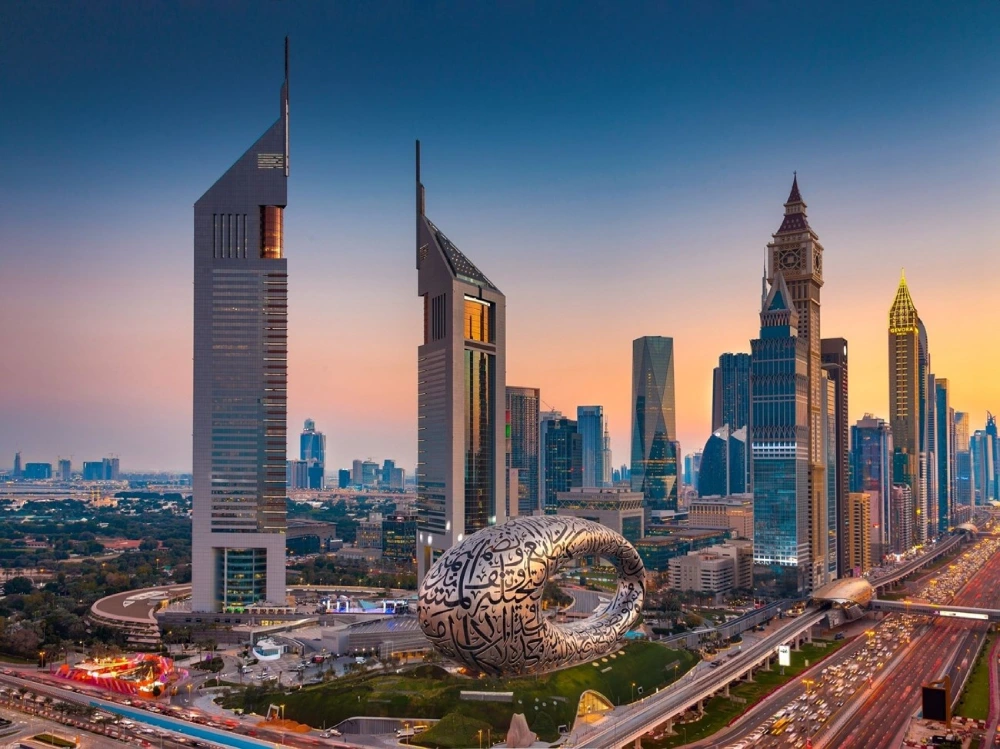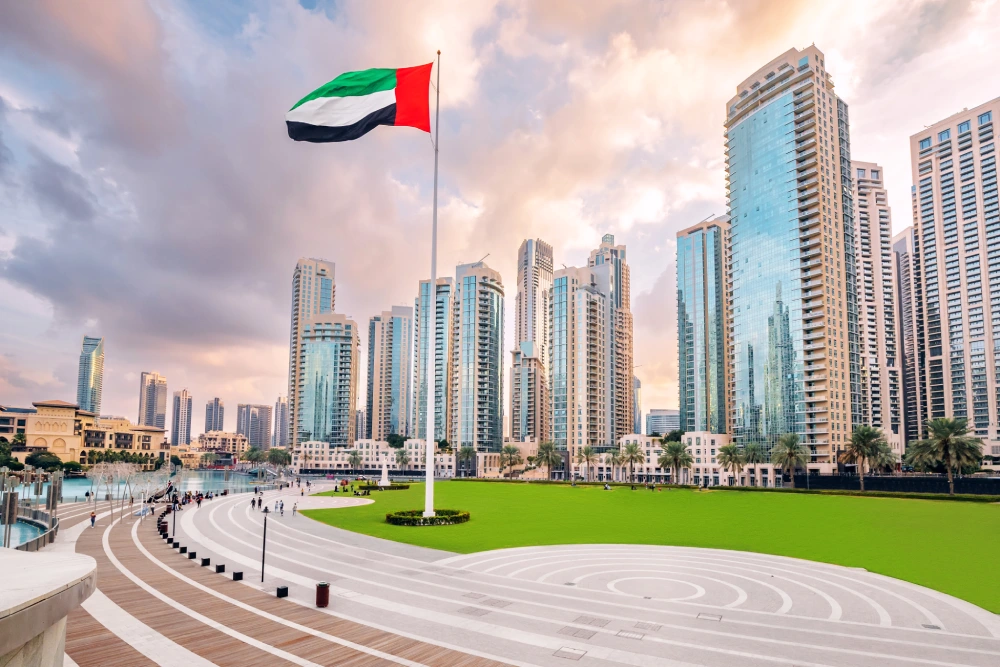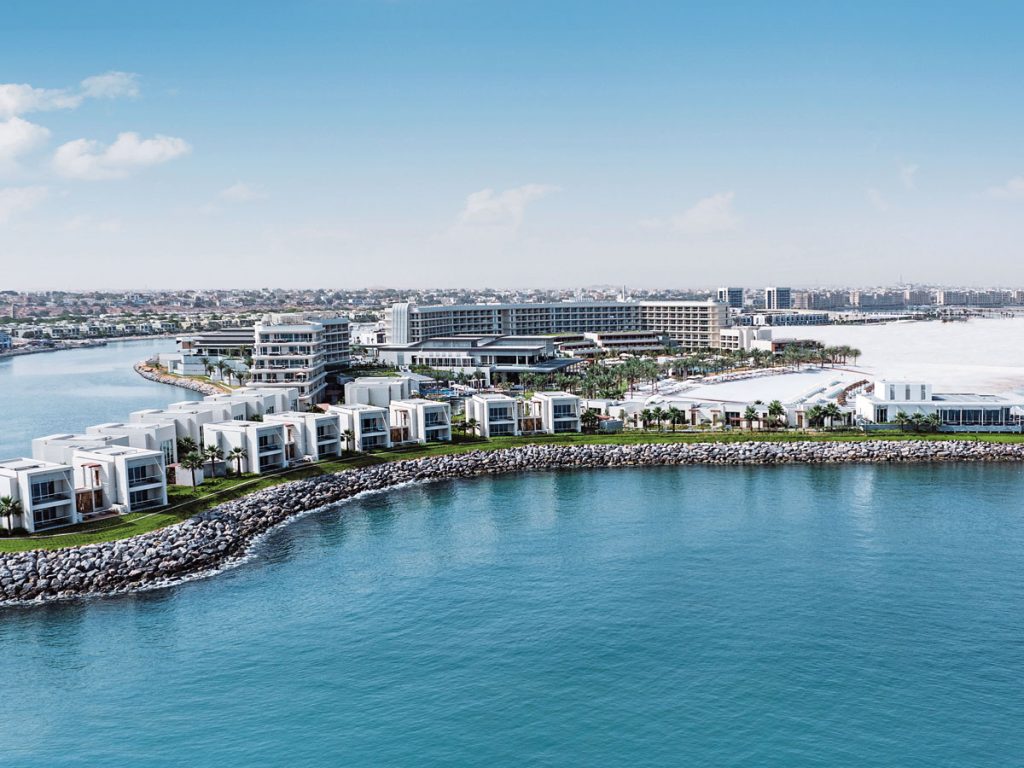Our Perspective on the UAE Real Estate Market
The UAE, particularly Dubai, has long been a top destination for real estate investment, with a great economy, no taxes, and amazing infrastructure. It’s been unbeatable for years.
Lately, however, some investors have been looking at Asia, where real estate markets are booming. Places like Vietnam, India, and Thailand are getting a lot of attention. So, it kind of makes you wonder: should we stick with Dubai’s steady returns, or is it time to explore the buzz in Asia?
Both have their pros and cons. Let’s break it down and figure out what makes sense for you.
1. The Dubai Real Estate Market: Strengths and Opportunities
Let’s break this down like we’re chatting over coffee. Dubai has made a name for itself as one of the world’s most attractive real estate markets. Think iconic skyscrapers, stunning villas, and penthouses that scream luxury. Plus, with its position as a global business and tourism hub, it’s no wonder investors keep flocking here.
Here’s why Dubai stands out:
- Tax-Free Environment: No property tax, no capital gains tax, no inheritance tax. That alone makes Dubai a dream for investors coming from places with heavy taxes.
- High Demand for Luxury Real Estate: Areas like Palm Jumeirah and Downtown Dubai are still in high demand among high-net-worth individuals. Everyone wants a piece of that exclusivity.
- Tourism and Global Events: Dubai’s always buzzing. With global events like Expo 2020 extending into 2024 and year-round tourism, short-term rental demand is through the roof.
- World-Class Infrastructure: From airports to malls and metro systems, everything in Dubai feels first-class. It’s a city designed to keep growing and supporting both residents and businesses.
- Ease for Foreign Investors: Buying property here is simple, thanks to foreign ownership laws in freehold areas. It’s a straightforward process for anyone outside the UAE.
But no place is perfect, right? Here’s what to keep in mind:
- Price Swings and Oversupply: The market’s had its ups and downs, with periods of oversupply. You’ll need to time your investment carefully to ride the right wave.
- High Initial Costs: If you’re eyeing premium spots like Downtown or the Palm, be ready to spend. Luxury doesn’t come cheap.
- Global Influences: Dubai’s market is tied to global trends. Anything from an economic downturn to geopolitical shifts can affect the flow of investment and tourism here.
Bottom line: Dubai’s got plenty of opportunities, but like any investment, it’s about knowing the market and playing your cards right.
2. The Asian Real Estate Market: A World of New Opportunities
Talking about Asia feels like we’re stepping into an exciting chapter for real estate, with cities like Singapore, Hong Kong, Tokyo, and Bangkok, and even hubs in India, Vietnam, and Indonesia are drawing increasing attention from international investors.
Here’s why Asia’s markets are worth exploring:
- Rapid Economic Growth: Countries in Southeast and South Asia are on a fast track to growth. Expanding middle classes and urbanization mean more demand for residential, commercial, and mixed-use properties. Cities like Manila, and Jakarta are buzzing with opportunities.
- Affordable Entry Points: Compared to Dubai, places like Vietnam, Thailand, and the Philippines offer entry points that are much easier on the wallet. Which can be attractive for investors looking for low-cost options with high growth potential.
- Rising Urbanization and Infrastructure Development: Governments are pumping money into new transport systems, smart cities, and airports. This isn’t just about convenience—it’s creating huge demand for property in cities like Delhi and Bangalore.
- Tourism Hotspots: From Bali to Phuket, Asia’s got some of the world’s most-loved tourist destinations. These spots are perfect for second-home buyers or anyone eyeing short-term rental investments.
But, as with anything, there’s a flip side:
- Market Volatility: While Asia offers high growth potential, it also comes with higher risks. Many Asian real estate markets can be volatile, subject to sudden price swings and external economic shocks. For example, markets like Hong Kong and China have experienced dramatic price increases followed by corrections.
- Regulatory and Legal Complexities: Real estate transactions in some Asian countries can be more complicated than in Dubai, with regulations that may be harder to navigate. In places like Thailand and Indonesia, foreign ownership laws can be restrictive, often requiring buyers to work with local partners or navigate complex legal systems.
- Currency Fluctuations: Unlike Dubai, where the UAE dirham is pegged to the US dollar, many Asian currencies can be volatile, impacting the long-term return on investment.
- Less Transparency: Information about property values, development plans, and market trends can be more difficult to access, requiring more due diligence.
3. Comparing Dubai and Asia: Which is Right for You?
When deciding between Dubai and Asia for real estate investment, here are some key points to think about:
1. Investment Horizon and Risk Appetite
- Dubai: Dubai offers stable returns with a transparent, tax-friendly environment. It’s a good fit for long-term investors who prefer predictability and a stable legal framework. However, if you’re looking for quick, high returns or are sensitive to market swings, Dubai may not be the best option.
- Asia: Particularly in developing markets, has higher potential returns, but it comes with more risk. If you have a higher tolerance for risk and a long-term perspective, markets like Vietnam, India, or Indonesia could offer strong growth opportunities due to rapid urbanization and booming economies.
2. Affordability and Entry Cost
- Dubai: Dubai offers luxury properties, but the cost of entry can be high, particularly in prime areas. This makes it more suitable for high-net-worth investors seeking long-term growth.
- Asia: Many Asian markets, like Bangkok, Manila, and Ho Chi Minh City, offer more affordable entry points. These markets can be a great option if you’re on a budget or want to diversify your portfolio with more cost-effective investments.
3. Market Stability and Transparency
- Dubai: Known for its stability and transparency, Dubai’s real estate market is well-regulated, offering solid protection for investors.
- Asia: While markets like Singapore and Japan are stable, many Asian countries can be more volatile and harder to navigate due to complex regulations and less market transparency. Investing here requires more due diligence.
4. Long-Term Growth Potential
- Dubai: With strong growth in luxury real estate, commercial properties, and tourism, Dubai continues to show promise for long-term growth. Its diversification strategies and global events will likely keep boosting property value.
- Asia: Many parts of Asia, especially Southeast Asia, have immense growth potential. As the middle class grows and infrastructure improves, cities like Jakarta, Bangalore, and Ho Chi Minh City are likely to see continued property
- value appreciation.
Where Should You Invest?
Dubai or Asia
the choice comes down to what you’re looking for in an investment. If you prioritize stability, transparency, and a tax-free environment, Dubai is a solid choice, especially for long-term investors.
On the other hand, if you’re open to higher risks and seeking faster growth, Asia’s growing markets can provide higher returns, though with more complexities to navigate. It’s important to weigh the trade-offs and align your decision with your goals and risk appetite.



